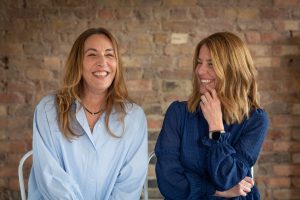Sarah Sultman, Gesher Co-Founder
Over the past decade, we’ve been on a journey to launch Gesher, with seven years as a flourishing school following three years of deep research and engagement with the sector to anchor our plans.
Myself and my co-founder, Ali Durban, have learned many valuable lessons about what it takes to set up an organisation from scratch – and yet how far we still have to go to inspire the wider education sector about what needs to change to achieve equity for children with SEN and those who learn differently.

We’ve been building relationships with people to share our learning. We are particularly keen to share how we designed and built our school – creating a blueprint around a vision, purpose and design principles that we carry into everything we do.
Although Gesher is a special school, the idea of using a blueprint to define your work is not limited to the creation of a school. Our approach provides plenty of ideas for youth movements, communities and other education organisations.
In pursuit of our aims to reach a wider audience, at the end of last year, Ali and I were delighted to be invited to speak at Limmud Conference at the NEC in Birmingham to people of all ages and interests from across the Jewish community.
Limmud Conference is an annual five-day learning experience that brings together thousands of people to celebrate Jewish culture through arts, dance, song, book reviews and talks. Here we delivered two sessions: one on the ‘Gesher Blueprint – from start-up to Outstanding’ and the other on ‘SEN and the system’.
We were pleased to welcome educators, parents and adults with SEN to our first session to hear about our journey to build Gesher. As one attendee, Tal Bassali from Zehud Jewish Online School said:
“I was fascinated that someone had re-invented, redesigned something in education – the idea that anything was broadly by design was exciting to me. Most solutions need to be reverse-engineered.”
Our second session on ‘SEN and the system’ again drew an audience of parents of children who learn differently, educators and local authority employees with a SEND interest who asked us questions about our personal experiences and sought advice and support on how to navigate the complexities of the system.
While both sessions offered us a brilliant chance to share ideas, listen and contribute to other people’s work and lives, we were aware that we rarely reach beyond a SEND audience when we talk to people.
Our aim of broadening our reach means we want to engage the wider world of education to help achieve greater understanding and inclusivity for children who learn differently, but also because we believe that we can learn from each other.

